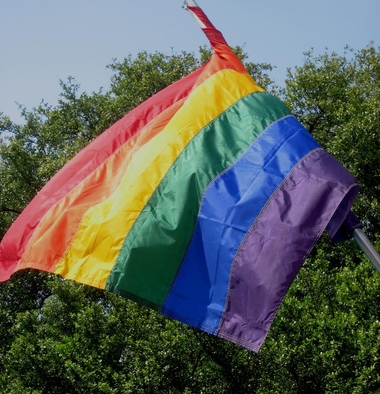Legal champions of the LGBT movement

by Sally Gilbert
Gayly Legal Columnist
I agree with Chris Matthews: “American history is about a civil war that never ends. It's about a battle between those who want to extend freedom, opportunity and rights, and those who want to restrict them. In the end, those who fight to enlarge our liberty tend to win.”
The fighters for sexual orientation equality include many ordinary citizens who have been willing to doggedly pursue their struggle through our court system, sometimes all the way to the U.S. Supreme Court, and the nonprofit legal advocacy organizations that have fought for them in the courtroom.
Take for example the pioneer case of John Lawrence and Tyron Garner. The two men were arrested and prosecuted in 1998 for having adult consensual sex in violation of the Texas Homosexual Conduct Act. Rather than quietly accepting their plight, Lawrence and Garner went public with their fight for justice in the less-than-sympathetic Texas courts. Predictably, they got no relief.
Fortunately Lambda Legal Defense and Education Fund attorneys took up the case, leading ultimately to the 2003 Lawrence v. Texas decision. Justice Anthony Kennedy wrote the majority Supreme Court decision in Lawrence in which the Court held the Texas law unconstitutional. In Lawrence the Court recognized for the first time that lesbian and gay adults have the same basic right to private sexual intimacy as heterosexuals. The result was all remaining sodomy laws in the United States were both unconstitutional and unenforceable.
The Lawrence decision is credited with being a predicate for the recent Windsor v. U.S. case in which the Supreme Court struck down the Defense of Marriage Act’s definition of marriage as a union between one man and one woman. Justice Kennedy also led the Court in the Windsor ruling. It is noteworthy that Justice Kennedy was appointed by conservative Republican president Ronald Reagan.
Lambda Legal was established in 1973 in New York “to protect the civil rights of homosexuals.” Since that time, Lambda has been involved in many landmark cases including Lawrence v. Texas. Lambda’s first court fight was to get approval from the State of New York to operate as a nonprofit law firm. Founder Bill Thom filed an application in 1972 patterned on an application by the Puerto Rican Legal Defense and Education Fund that had been readily approved. A panel of New York judges denied the application on the ground that its mission was “neither benevolent nor charitable.” The highest court in New York found otherwise, stating, “We can perceive no rational distinction in the need for group legal services as between Puerto Ricans and homosexuals.”
Lambda Legal also fought posthumously for the legal rights of Brandon Teena after he was murdered in 1993 by the two men who had brutally raped him. Teena was physiologically a female and grew up as such. He was living as a man at the time of the attack. The legal suit was brought by Teena’s mother against the county sheriff in Nebraska who investigated the crime. Teena had reluctantly agreed to press charges only to have the sheriff inform the rapists of his decision and then fail to protect him against his attackers, even though the sheriff knew that the two men had threatened Teena if he reported the crime. The jury awarded damages of $81,000. Lambda successfully defended the verdict and the Supreme Court of Nebraska unanimously upheld the award in 2001.
Another activist group, the Gay and Lesbian Advocates and Defenders, has been instrumental in promoting legal equality for transgender people. In a 2000 Massachusetts case, Pat Doe v. Yunits, GLAD successfully sued a local school system on behalf of a biologically male middle school student who sought to wear female clothing to class.
The school had been disciplining the student for almost two years before GLAD obtained relief. GLAD has also been involved in convincing courts in New York and New Jersey and administrative agencies in Connecticut, Hawaii and Vermont to interpret anti-discrimination laws to include gender identity protections.
In litigation filed in May, the Southern Poverty Law Center, long active in racial discrimination lawsuits, has taken up the case of Pam and John Crawford and their adoptive child M.C. The baby was born with both male and female sexual organs. While in the custody of South Carolina Social Services and only 16 months old, physicians surgically removed the child’s male organs and enhanced the female genitalia.
Medical records from the surgery indicated that the child could have been assigned either gender. Although now physiologically a female, 8-year-old M.C. has long exhibited a male identity. The suit against the surgeons and Social Services alleges that the irreversible and medically unnecessary surgery could and should have been delayed until the child had the chance to find his own gender identity.
These are just a few of the courageous men and women litigants and the nonprofit organizations that have advocated on their behalf in the cause of legal equality for all persons across the broad spectrum of sexual orientation and gender identity. They are just a few of the heroes whose bravery and determination have made history in the battle for freedom against those who seek to hold them back. I’m hopeful that in the end, as Chris Matthews predicts, those struggling to enlarge our liberty will prevail.
October 24, 2013





